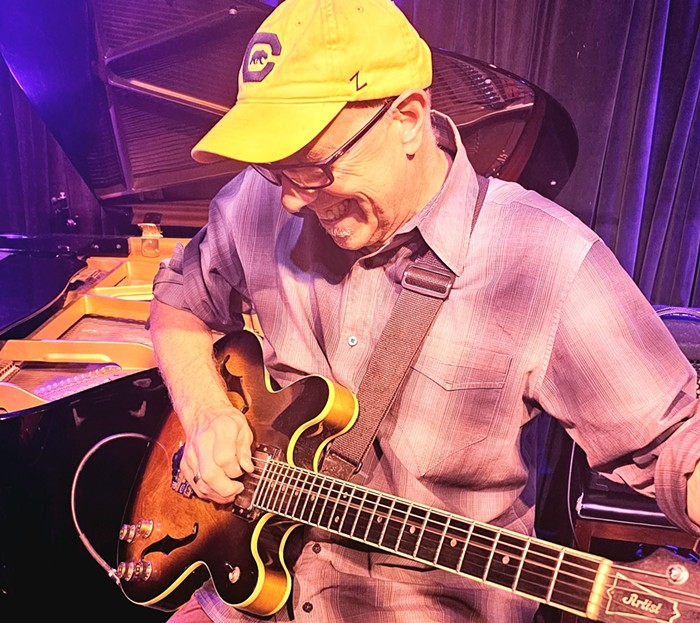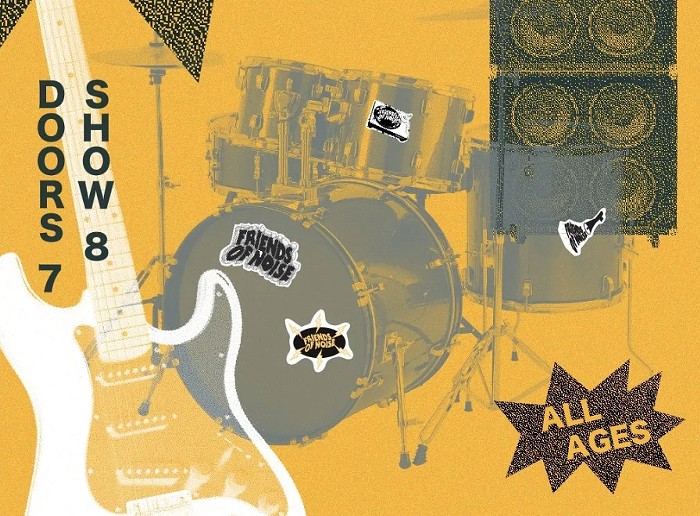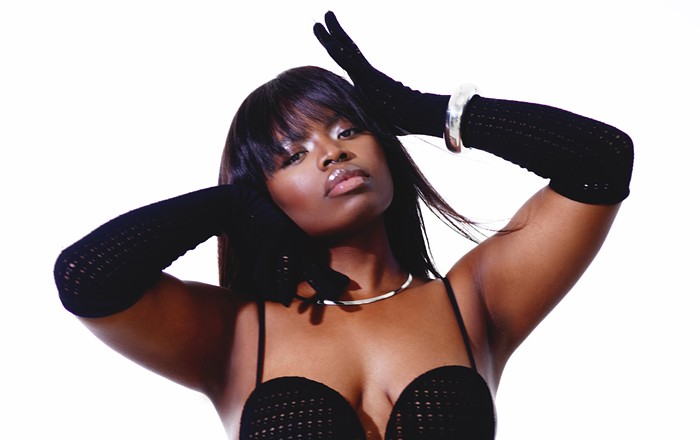I LOVE Mötley Crüe's first two records, Too Fast for Love and Shout at the Devil. They're classicks. I'll even listen to a little Dr. Feelgood from time to time. But as the band drags its knuckles toward the end of a three-and-a-half-decade career in what they're emphatically calling "The Final Tour," I've been trying to wrap my head around how the fuck Mötley Crüe got to the point where—some 25 years past their prime—they can manage to fill 72 arenas and amphitheaters across the US and Canada.
Even back in 2005—the first time Crüe threatened to quit, 15 years past their prime—they were playing arenas, including Madison Square Garden. It was the same year I saw Ratt play to 40 people in a smelly club in Chico, California. (In a strange twist, John Corabi, who briefly replaced Crüe singer Vince Neil in 1992, was playing with Ratt at the time). Three years before that, I saw Quiet Riot perform in the same club. I'd argue that both those bands are better than Crüe. So is Twisted Sister. Maybe even W.A.S.P.
So what makes Mötley Crüe special? I guess Tommy Lee can steer a boat with his dick, and he's a kickass skinsman onstage, too. Vince Neil can drink, drive, kill his friend, and only serve two weeks in jail. (Neil's now the proud proprietor of his own Tatuado line of tequila.) Nikki Sixx can OD on heroin, come back to life, write a song about it, and go on to host a Sixxessful radio show, Sixx Sense. And Mick Mars is still above ground, his ankylosing spondylitis be damned.
Crüe is also credited with inventing the power ballad with "Home Sweet Home," a truly terrible song from their worst record (1985's Theatre of Pain) that, for some reason, every shitty copycat band from LA would try to ape for the next five years.
Like I said, those first two Crüe records are killer—a steaming cocktail of punk rock, glam, and New Wave of British Heavy Metal riffs. Theatre of Pain is awful, and 1987's Girls, Girls, Girls isn't much better. And I forget the names of anything released after 1994. So Mötley has essentially made this career for themselves off three decent albums (that's counting Dr. Feelgood). As far as pop metal goes, Ratt's first three records are just as good. Probably better.
The Dirt didn't hurt. The band's 2001 autobiography—written with author/journalist Neil Strauss—painted a venereal-diseased and drug-fueled picture of '80s excess in the hands (and leather pants) of three twentysomethings (and Mick Mars) who managed to all come out of it alive. The Dirt miraculously made even regular people give a shit about Mötley Crüe, and a movie is currently in the works. Essentially, the band has managed to preserve and cultivate their own legend.
An equal amount of care has gone into hyping this "Final Tour." A press conference held back in January featured the band pulling up in a hearse and answering questions behind personalized tombstones. They even signed a "cessation of touring" agreement, which assures that the four members will never step onstage together again.
If only they'd put the same attention to detail into the actual performances. Mötley Crüe's kickoff at Van Andel Arena in Grand Rapids, Michigan, was littered with flubs, technical glitches, and glares between members. ("The tour has been positioned as a funeral for Mötley Crüe," wrote the Detroit News' Adam Graham, "and in the crowd Wednesday it certainly felt like one.")
The tagline for the Crüe's final tour is "All Bad Things Must Come to an End." No argument here. It probably should've happened in 1991, but then we would've never seen one of the true highlights of the band's 33 years in the biz: Samantha Maloney, who sat in the drum throne from 2000 to 2004—the only woman to ever be a part of Mötley Crüe.



















